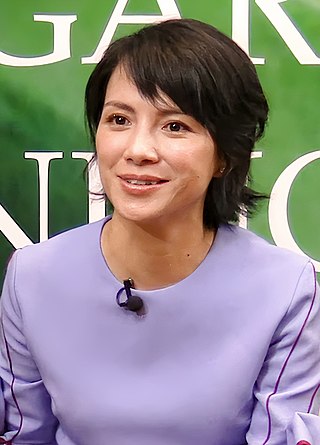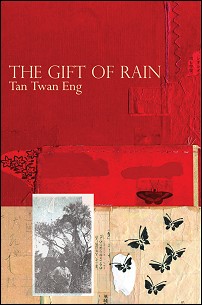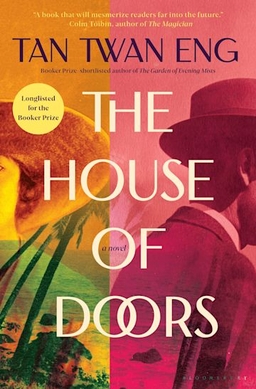
Yamashita's gold, also referred to as the Yamashita treasure, is the name given to the alleged war loot stolen in Southeast Asia by Imperial Japanese forces during World War II and supposedly hidden in caves, tunnels, or underground complexes in different cities in the Philippines. It was named after the Japanese general Tomoyuki Yamashita, dubbed as "The Tiger of Malaya", who conquered Malaya within 70 days from the British. Though there are accounts that claim the treasure remains hidden in the Philippines and have lured treasure hunters from around the world for over 50 years, its existence has been dismissed by most experts. The rumored treasure was the subject of a complex lawsuit that was filed in a Hawaiian state court in 1988 involving a Filipino treasure hunter, Rogelio Roxas, and the former Philippine president, Ferdinand Marcos.

The Snake Temple, also known as the Temple of the Azure Clouds, is a Chinese temple within George Town in the Malaysian state of Penang. Located at Bayan Lepas, the temple is well-known for being a refuge of resident snakes, said to be reincarnated disciples of the deified Buddhist monk Master Qingshui, to whom the temple is dedicated.

Lee Sinje is a Malaysian film actress and pop singer. She started her career in singing and later moved on to acting in Taiwan, Hong Kong and Malaysia. Lee starred in The Eye, the hit Asian horror film by the Pang Brothers, winning her the Golden Horse Award for Best Actress, Best Actress at the Hong Kong Film Awards and a Hong Kong Golden Bauhinia Awards. She is among the very few Asian artists to be awarded Best Newcomer Awards at the Berlin Film Festival in 2001 for her role in Betelnut Beauty.

Yūgiri was the fourteenth of twenty-four Fubuki-class destroyers, built for the Imperial Japanese Navy following World War I. When introduced into service, these ships were the most powerful destroyers in the world. They served as first-line destroyers through the 1930s, and remained formidable weapons systems well into the Pacific War.
Rani Manicka is a Malaysian-born novelist, who divides her time between Malaysia and the United Kingdom.
The Man Asian Literary Prize was an annual literary award between 2007 and 2012, given to the best novel by an Asian writer, either written in English or translated into English, and published in the previous calendar year. It is awarded to writers who are citizens or residents of one of the following 34 Asian countries: Afghanistan, Bangladesh, Bhutan, Cambodia, China, East Timor, Hong Kong, India, Indonesia, Iran, Kazakhstan, Kyrgyzstan, Japan, Laos, Macau, Malaysia, Mongolia, Myanmar, Nepal, North Korea, Pakistan, Papua New Guinea, Philippines, Singapore, South Korea, Sri Lanka, Taiwan, Tajikistan, Thailand, The Maldives, Turkey, Turkmenistan, Uzbekistan, Vietnam. Submissions are invited through publishers who are entitled to each submit two novels by August 31 each year. Entry forms are available from May.
Tan Twan Eng is a Malaysian novelist who writes in English. He published his first novel, The Gift of Rain, in 2007. He is best known for his 2012 book The Garden of Evening Mists which won the Man Asian Literary Prize and Walter Scott Prize for Historical Fiction, and was shortlisted for the Man Booker Prize, making Tan the first Malaysian to be recognised by all three awards.

The Gift of Rain is the first novel by Malaysian novelist Tan Twan Eng. It was published in 2007 by Myrmidon Books in the United Kingdom and the following year by Weinstein Books in the United States, and was longlisted for the Man Booker Prize that year.
In Pursuit of Peace is a Singaporean television drama set in Japanese-occupied Singapore during World War II. The series was first run on MediaCorp Channel 8 from 9 March to 11 May 2001 on Friday nights. The series is based on the 1999 book Eternal Vigilance: The Price of Freedom, which contains numerous eyewitness accounts of survivors of the Japanese occupation of Southeast Asia. In contrast with The Price of Peace, a similar television series aired on MediaCorp Channel 8 in 1997, In Pursuit of Peace focuses more on developing the main characters' stories, while the former places greater emphasis on the historical aspects of the Japanese occupation.
The Ethel Proudlock case refers to a 1911 shooting by Proudlock, her trial for murder, and the cause célèbre scandalising British colonial society in Kuala Lumpur, Federated Malay States it created.
The 2012 Booker Prize for Fiction was awarded on 16 October 2012. A longlist of twelve titles was announced on 25 July, and these were narrowed down to a shortlist of six titles, announced on 11 September. The jury was chaired by Sir Peter Stothard, editor of the Times Literary Supplement, accompanied by literary critics Dinah Birch and Bharat Tandon, historian and biographer Amanda Foreman, and Dan Stevens, actor of Downton Abbey fame with a background English Literature studies. The jury was faced with the controversy of the 2011 jury, whose approach had been seen as overly populist. Whether or not as a response to this, the 2012 jury strongly emphasised the value of literary quality and linguistic innovation as criteria for inclusion.
Myrmidon Books is a UK publisher of literary and genre fiction founded in 2006 by Ed Handyside. The company is based in Newcastle upon Tyne in the United Kingdom. The Myrmidon book The Garden of Evening Mists, by Tan Twan Eng, was shortlisted for the 2012 Man Booker Prize.
The Yong Loo Lin School of Medicine, established in 1905, is the first institution of higher learning in Singapore and the genesis of the National University of Singapore. The School is one of many who offer medical programmes in the Asia Pacific region. The Times Higher Education World University Rankings 2019 by subject and Quacquarelli Symonds (QS) World University Rankings by Subject 2019 list NUS Medicine as the leading medical school in Asia. Its distinguished alumni include cabinet ministers of Singapore, well-known doctors and a Prime Minister of Malaysia and father of the president-elect of Singapore.
Jane Teoh is a Malaysian Chinese model and beauty pageant titleholder, who was crowned Miss Universe Malaysia 2018. She represented her country at the Miss Universe 2018 pageant and did not make it to the semifinalists round. This was the 48th consecutive year Malaysia did not place in the Miss Universe pageant.

The Garden of Evening Mists is a 2019 Malaysian English-language historical drama film directed by Tom Lin Shu-yu from the screenplay of Richard Smith and adapted from Tan Twan Eng's 2012 novel of same name. A woman, still haunted by her experiences in a Japanese internment camp as a child, travels to Cameron Highlands during the Malayan Emergency and becomes the apprentice of a mysterious Japanese gardener. It stars Lee Sin-je, Sylvia Chang and Hiroshi Abe.

The Faculty of Medicine, University of Malaya is one of the thirteen faculties of the University of Malaya (UM). It was officially established in September 1962 after the establishment of the university's Kuala Lumpur campus. This was the first medical school established in Malaysia.

Tan Teck Neo, also known as Mrs. Lee Choon Guan, was a Peranakan philanthropist and socialite.

The House of Doors is a 2023 historical novel by Tan Twan Eng, published by Bloomsbury Publishing. The novel, set in the 1920s British colony of the Federated Malay States, tells the stories of the local residents and visitors, including a fictionalized version of William Somerset Maugham.











